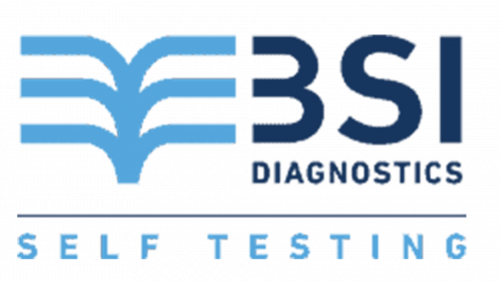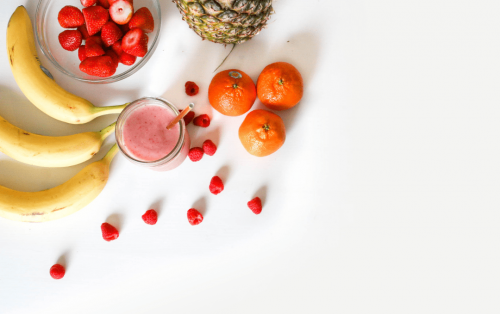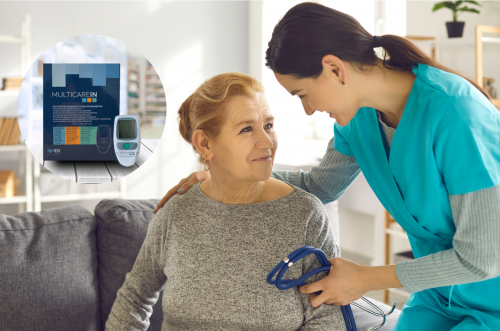This article emphasizes the importance of blood cholesterol and triglyceride testing after Eid al-Adha to stay alert to lipid metabolism disorders. Eid al-Adha celebrations often involve consuming delicious food, especially meat, which can negatively impact lipid metabolism balance in the body. Blood cholesterol and triglyceride testing provides information about the risk of heart disease and helps doctors provide appropriate recommendations.
Eid al-Adha, one of the major celebrations for Muslims, often involves indulging in delicious food, particularly meat. However, after the festivities, it is important for us to pay attention to our health. One thing to be cautious about is lipid metabolism disorders, especially high blood cholesterol and triglyceride levels. Therefore, blood cholesterol and triglyceride testing after Eid al-Adha is crucial to ensure our well-being.
Cholesterol and triglycerides are types of fats found in the blood. Cholesterol is necessary for various vital functions in the body, such as hormone production, vitamin D synthesis, and cell membrane formation. However, when the cholesterol levels in the blood are too high, especially high levels of LDL (bad) cholesterol, it can increase the risk of heart and vascular diseases. Triglycerides, on the other hand, are the main form of fat in the body and serve as an energy source. However, high triglyceride levels can also be a risk factor for heart disease.
Consuming high-fat foods, particularly saturated and trans fats, and excessive calorie intake during Eid al-Adha can negatively impact the balance of lipid metabolism in the body. This condition can lead to increased levels of cholesterol and triglycerides in the blood. Therefore, after Eid al-Adha, it is important to pay attention to a healthy eating pattern, maintain a balanced weight, and engage in regular physical activity.
Blood cholesterol and triglyceride testing after Eid al-Adha can provide valuable information about our health. This test involves taking a blood sample and analyzing the levels of total cholesterol, LDL cholesterol (bad cholesterol), HDL cholesterol (good cholesterol), and triglycerides. The test results help doctors assess our risk of heart disease and provide advice on necessary steps to maintain our health.
If the test results show elevated cholesterol and triglyceride levels, the doctor may provide appropriate recommendations and advice. Some lifestyle changes that can help lower cholesterol and triglyceride levels include:
-
Adopting a healthy eating pattern: Reduce consumption of saturated fats, trans fats, and high-cholesterol foods. Instead, consume fiber-rich foods such as fruits, vegetables, whole grains, and fatty fish rich in omega-3 fatty acids.
-
Managing eating habits: Control portion sizes, avoid overeating, and pay attention to calorie intake.
-
Engaging in regular exercise: Participate in aerobic activities such as walking, running, swimming, or cycling, which can help lower cholesterol and triglyceride levels in the blood.
-
Maintaining a healthy weight: Manage body weight by balancing calorie intake and physical activity.
-
Avoiding excessive alcohol consumption and smoking.
-
Paying attention to medication use: In some cases, doctors may prescribe medications like statins to control cholesterol levels.
What devices Can Help Me Monitoring at home?
If you want to keep a close eye on your blood pressure, weight, or exercise levels, there are several tools available that can motivate you and track your progress. Blood Glucose, Cholesterol, and Triglycerides Monitoring System: For monitoring blood sugar, cholesterol, and triglyceride levels, PT Isotekindo Intertama offers a specialized product called MULTICAREIN Meter 3 in 1 Blood Glucose, Cholesterol, and Triglycerides. This device allows for quick and easy testing using test strips.
Key Features and Benefits of the MULTICAREIN Meter 3 in 1 Blood Glucose, Cholesterol, and Triglycerides include:
- Short testing time: The glucose test takes only 5 seconds, while the cholesterol and triglycerides test takes 20 seconds, making the testing process efficient.
- 3-in-1 parameter: The device allows for cost-effective and practical testing of glucose, cholesterol, and triglycerides using a single device.
- Ample data memory: The device can store up to 500 test results, making it easy to track and review previous readings.
- Test strip ejector: Equipped with a test strip ejector, the device ensures safe and hassle-free use.
- Customizable: The device is suitable for both men and women and can be calibrated for accurate measurement results.
Abnormal blood parameters such as high blood glucose, elevated serum cholesterol, and increased serum triglycerides may indicate a clinical condition known as metabolic syndrome, which can increase cardiovascular risk. Regular monitoring of these parameters is important for maintaining heart health.
Blood cholesterol and triglyceride testing after Eid al-Adha is important to ensure our health and take appropriate actions if lipid metabolism disorders are detected. However, it is also important to remember that this testing should be part of our overall healthcare routine.
References:
- American Heart Association - Triglycerides: https://www.heart.org/en/health-topics/cholesterol/about-cholesterol/triglycerides
- Centers for Disease Control and Prevention (CDC) - Cholesterol: https://www.cdc.gov/cholesterol/index.htm
- Insert Kit MULTICAREIN Meter
- National Heart, Lung, and Blood Institute (NHLBI) - High Blood Cholesterol: https://www.nhlbi.nih.gov/health-topics/high-blood-cholesterol
- Mayo Clinic - Cholesterol test: https://www.mayoclinic.org/tests-procedures/cholesterol-test/about/pac-20384601
- Mayo Clinic - Triglycerides: Why do they matter?: https://www.mayoclinic.org/diseases-conditions/high-blood-cholesterol/in-depth/triglycerides/art-20048186







